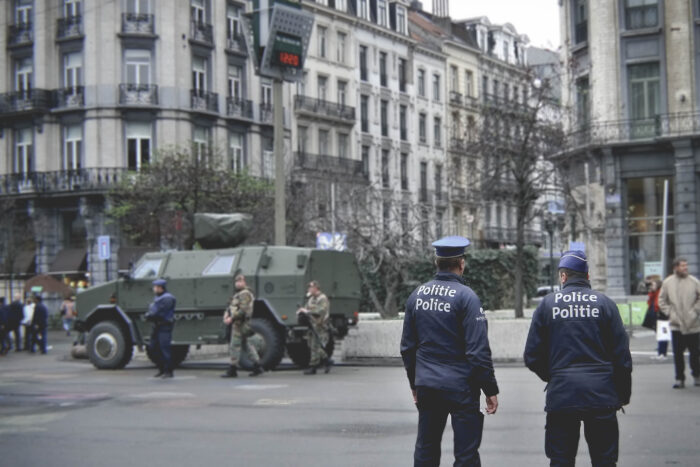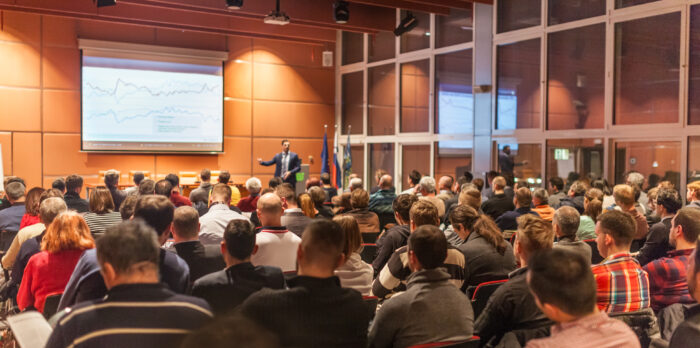Establishment
On 7 December 1988, representatives of the Schools of Criminology and the various Flemish-speaking police schools met for the first time. During this meeting, it was discussed which objectives and tasks a Police Studies Centre could fulfil and what contribution the Schools of Criminology could make to that end.
Subsequently, the Centre for Police Studies was officially established on 30 January 1990 as a de facto association. Immediately the development of the first activities was started. Finally, the Centre for Police Studies (abbreviated to the CPS) was established in January 1993 as a non-profit organization. Originally, the secretariat was located at the Free University of Brussels (V.U.B.). It was then transferred to the Department of Criminal Law, Criminal Procedure and Criminology of the Catholic University of Leuven (K.U.L.).
From October 1997 to July 2004, the CPS was located in the buildings of the province of Flemish Brabant. Since July 2004, the headquarters of the association has been located in the buildings of the OPAC (East Flemish Police Academy) in Ghent. Until November 2007, the secretariat was provided by the University of Ghent (Department of Criminal Law and Criminology), F. Laurentplein 1 in Ghent. In November 2007 the CPS moved to Ghent, Kortedagsteeg 14a and then in April 2011 to Pacificatielaan 27 in the premises of the federal police.
Over the years, the objectives of the CPS have been extended to the entire security sector. At the extraordinary general assembly of 24/11/2014, it was decided to change its name to “Centre for Policing and Security – CPS”. This change of name and broadening of objectives (and the accompanying amendment of the articles of association) was unanimously approved by the members.
Mission and objectives
Mission
The Centre for Policing & Security (CPS) was founded more than three decades ago on the joint initiative of individuals from educational institutions. They worked in academic training at universities and colleges, but also in police training at provincial and federal schools.
From its foundation on, the initiators aimed at cooperation between these educational institutions. Their goal was the joint development of scientifically based knowledge about the police and their place in society. Genuine police-specific or police-specific technical themes were less of an issue.
The CPS assumed that both the academic and the police academies had a joint mission or assignment. This concerned contributing to or helping to solve societal issues and problems in the broad security sphere.
In order to realize this social mission, the CPS opted for the structure of a ‘non-profit organization or VZW.
The CPS still confirms the founders’ commitment. From the point of view of the police and science, it is still about making a joint contribution to solving societal issues and problems in the broad security sphere.
To this end, the CPS developed a cooperation between police and science that is critical, but also requires empathy. The starting point is the observation that both police and science have an important role to play in the aforementioned security sphere. Critically examining the functioning of the police as an institute or organization is necessary in this context. A similar attitude may be expected with respect to the practice of science. An important principle is therefore the mutual respectful treatment of the core values of police and science in our contemporary society.
Apart from the police, more and more other actors in security are involved in the elaboration of initiatives and belong to the target audience of these initiatives.
In recent years, the CPS has therefore constantly broadened its objectives. The CPS strives for the goal, not only from the point of view of the police and science, but together with the entire security sector, to contribute jointly to the solution of societal issues and problems in the broad field of security. After all, the broad sphere of security and the societal questions and problems that it raises benefit from the maximum involvement of all the actors who play a role in it.
The activities organized by the CPS are therefore always at the crossroads of the security sector, the police and society.
This expansion is also clearly reflected in the name of the CPS: since the end of 2014, the CPS has been operating as a “Centre for Policing and Security”. You will find us at www.policingandsecurity.be since January 2015 and can reach us via sec@policingandsecurity.be. However, apart from a new name, a new website and email address and an expansion of our objectives, nothing has changed!

Objectives
The purpose of the association is :
Promoting and utilizing security studies, among other things by organizing conferences and study cycles at an academic level around security related problems.
The association organizes quality confernces and study cycles for a wide audience. Within this framework, it aims to bring scientific research to the attention, to test scientific theory against practice, to make diversity of views more explicit, to carry out benchmarking and to make (international) comparison possible. For this reason, various security actors are involved in the development of the CPS initiatives.
To this end, the association pursues an active and high-quality publication policy. Through the CPS publications in collaboration with Vanden Broele Publishers, it ensures that qualitative contributions reach the target audience. However, the publications enjoy editorial autonomy.
Stimulating and organizing research and study of security issues
Stimulating and organizing does not mean conducting scientific research within the CPS.
What the association does want to achieve, however, is on the one hand to identify useful research themes for commissioners of scientific research on the occasion of the setting of the themes.
On the other hand, the association wants to take initiatives that allow the results of scientific research to be valorized and translated to the policy level and police practice. The CPS can encourage research centers and groups to initiate certain scientific research.
The association itself is committed to promoting research into and by the police. It does this, for example, by increasing the accessibility of research settings and data.
Making the security policy more scientifically grounded and more efficient through working groups and targeted experience
The association sets up modest forms of work that allow to enrich and deepen the social debate on security. These working methods include, for example, seminars, discussion evenings, regional sessions, working groups or academic lectures.
In addition, the association will actively seek the development of working methods that can contribute to knowledge development and experiential learning.
The CPS will also continue to develop information channels, including an informative website and a CPS newsletter.
- In function of this goal, the association wants to establish cooperation between the training courses in the universities and colleges on the one hand and the professional training courses in the security sector on the other hand.
The latter objective encourages the association to recruit members from the various training institutions. In this way, the intended cooperation in the form of associations and alliances can continue to grow.
It is in this perspective that the association takes a constructive and supportive position in projects aimed at lifelong learning.
The association itself will not take training initiatives that compete with other, similar initiatives. The center can participate in training initiatives if requested, or fill gaps that appear to exist in the training offer to the target audience.
It may also undertake any activities that may further this goal. In this sense, it may also, but only in an incidental manner, engage in commercial activities, only to the extent that the profits are used for the purpose for which the CPS was established.


